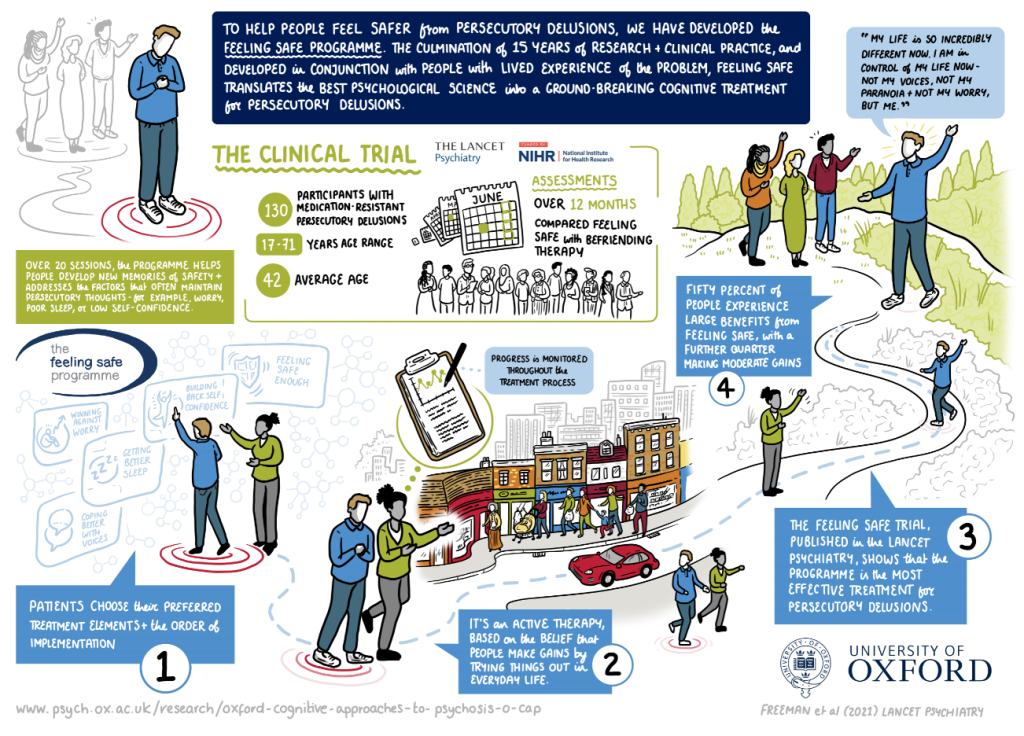When mental health professionals encounter someone who seems to have “persecutory delusions,” they routinely assume there must be something wrong with the person’s brain, something that can only be treated by administering drugs. And to the extent that the drugs don’t work, it is often assumed that they must just live with a “chronic illness.”
Some have tried talk therapy approaches, but up till recently, the success rate seemed small, with most people not experiencing a lot of benefit.
That is why, over the past decade, Daniel Freeman and colleagues set out to develop a new cognitive treatment – translated from an empirically established theoretical model – that would produce large effect size reductions in persistent persecutory delusions. The primary outcome randomized controlled trial, published in the Lancet Psychiatry, reported success in reaching the aim of having 50% of patients experiencing recovery in their persistent persecutory delusion, and reported a treatment effect size several times higher than conventional CBT.
This approach reached its goals not by addressing delusions head on, but by addressing things that made people feel unsafe: things like sleep and worry problems, lack of self confidence, and patterns of avoidance that had become crippling.

In a webinar on 3/11/22, Daniel Freeman provided an overview of the principles underlying the development of the Feeling Safe programme; the theoretical model; a number of key empirical studies; the content and style of therapy, and the main randomised controlled trial outcome results. He argued that the Feeling Safe programme provides new optimism in the treatment of delusions. See below for a recording of that webinar.
About the presenter:
Daniel Freeman is a Professor of Clinical Psychology and NIHR Senior Investigator at the University of Oxford and a consultant clinical psychologist in Oxford Health NHS Foundation Trust. Professor Freeman’s research has focussed on using psychological theory to develop more powerful psychological treatments. He has also been pioneering the development of automated virtual reality treatments for mental health conditions. He is the recipient of the 2020 British Psychological Society Presidents’ Award for Distinguished Contributions to Psychological Knowledge. He presented the BBC Radio 4 series ‘A History of Delusions’.



